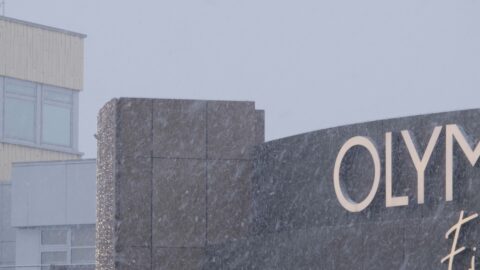Immigrants give so much to Germany. They build its cities, they provide its food, they create its culture. And what do they get in return?
Are they embraced? Are they tolerated? Or are they a scapegoat for the country’s slow economic decline and waning international influence?
The excellent in retrospect uses the construction of the Olympia Shopping Mall — once the biggest in Europe — as a metaphor for Germany’s failed integration at large. It was built mostly by gastarbeiterinnen (guest workers) from Turkey, Yugoslavia and Italy from 1970 to 1972.
Unmentioned is how the Munich Olympics, meant to be Germany’s big signal to the world that it was a diverse and tolerant place, became an unfettered disaster after their fatal response to the kidnapping of several Israeli athletes.
But the mall itself holds yet another site of shame for the complicated nation. Despite being built by foreigners, it was the site of a racist shooting in 2016 that killed nine people, specially targeted by their race.
Faezi and Zhluktenko use a mixture of archival footage, current-day images of the mall, simple text overlays and moody, experimental sound design to explore this shameful part of German history, twinning the 2016 shooting with the 1982 death of Semra Ertan, a 25-year-old Turkish migrant worker who set herself on fire in a Hamburg marketplace to protest the treatment of Turks in Germany. This act of self-immolation was the inspiration behind Iranian filmmaker Sohrab Shahid Saless’ Addressee Unknown (1983), which imagined an affair between a white German woman and a Turkish migrant. Rather than recreate the horrors, Saless attempted to imagine an alternative.
Naturally, a work like this has yet to be restored, so we are treated to low-res images found on a Farsi telegram channel, as well as archive footage of immigrant workers explaining how manual jobs are the only ones really open to Turkish people. Having worked in many office jobs in Berlin since moving here ten years ago, I can concur via anecdote, having worked with disproportionately few Turkish or Arab people. This makes the images and ideas presented in this short so vital, holding up a mirror to a country that presents itself as a diverse and wonderful society, but still feels mired in the racist ideals of the past.
And I’m not even exaggerating: according to the polls (as of this time of writing), one-fifth of Germans are going to vote for the AfD, who are neo-Nazis, and three-tenths will vote for the increasingly right-wing and nativist CDU. Add in smaller anti-immigration parties, like Sahra Wagenknecht’s new venture, and that’s easily over half of the nation still in favour of demonising the very people that made Germany an economic powerhouse. A film like In Retrospect probably isn’t going to move the needle, but at least it very carefully pinpoints exactly how Germany got it so wrong.
Redmond is the editor-in-chief of Journey Into Cinema.
